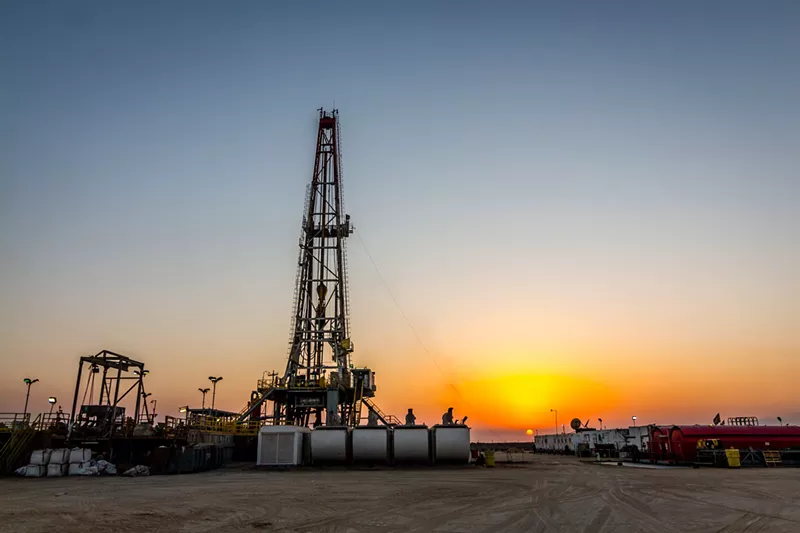Before most of us had ever heard the word "coronavirus," Colorado’s oil and gas producers were already bracing themselves for a rough 2020. After years of soaring production and free-flowing investment from Wall Street, a global glut of oil and especially natural gas was keeping prices low even as new wells underperformed, causing profits to fall, debts to pile up and investors to begin fleeing.
Coupled with persistent industry complaints about the new health and safety regulations imposed by Colorado Democrats, the economic outlook had plenty of drillers worried about what would come next. “Economic and regulatory uncertainties, along with exploration and production optimizations, may translate to stagnant or decelerating job growth in 2020,” predicted economists at the University of Colorado’s Leeds School of Business in a December forecast.
Not long afterward, the spread of COVID-19 began sending shock waves around the globe, prompting containment measures that brought daily routines and economic activity to a sudden halt — and what had already figured to be a challenging year for the oil and gas industry has quickly turned into a bloodbath.
“The global economy is under pressure in ways not seen since the Great Depression in the 1930s,” analysts at the International Energy Agency say in a special report released today, April 15. “Confinement measures are in place in 187 countries and territories, and although they vary in scope, activity in the transportation sector has fallen dramatically almost everywhere.”
Even if social distancing and other shutdown measures are lifted in the second half of 2020, the IEA projects, demand for oil will fall to its lowest annual level in decades. U.S. crude oil prices have crashed to below $20 per barrel, down by more than two-thirds since January 1, and a wave of bankruptcies, layoffs and cutbacks is starting to sweep across the country — and Colorado producers are by no means immune.
The latest victim of the crash is Denver-based PDC Energy, the state’s third-largest oil and gas producer, which said this week that it will slash its capital expenditures nearly in half this year, cutting hundreds of millions of dollars in planned investment in drilling and production from its operations in Colorado and other states. Oilfield workers and other company employees face furloughs, buyouts and other “reduction-in-force” measures, while executives will take a 15 percent pay cut.
”The industry is in the midst of global demand destruction to which PDC is not exempt,” president Bart Brookman said in a statement announcing the company’s plans.
PDC is far from alone, and other producers headquartered in Denver have been hit particularly hard. Extraction Oil and Gas, operator of several of the Front Range’s most controversial drilling projects, has similarly slashed its 2020 budget, while Whiting Petroleum announced on April 1 that it had filed for bankruptcy.
On April 15, another big Colorado producer, Houston-based Noble Energy, also announced a series of cutbacks and furloughs. Occidental Petroleum, which became Colorado’s largest oil producer when it acquired Anadarko last year, has seen its stock price collapse from a high of $47.26 in mid-January to $13.14 today.
In addition to threatening tens of thousands of oilfield jobs, the slump is sure to impact the state budget, though less severely than you might think. Colorado's severance-tax revenues, which are based on production levels and split by state and local governments, were already projected to be cut in half in 2020 compared to last year, thanks to a complicated collection formula that includes some generous tax breaks — and the net loss of tens of millions of dollars pales in comparison to the multi-billion-dollar hole in the budget that state lawmakers are likely to face when they resume the legislative session later this spring.
The most severe budgetary effects will be felt in Weld County, home to over 90 percent of the state's oil production, where the county and local school districts receive hundreds of millions of dollars annually from property taxes assessed on oil and gas assets. The total assessed value of the county's oil and gas property crashed by nearly 50 percent year-over-year amid the Great Recession a decade ago, according to state tax data, and local officials are bracing for an impact that could be even worse this time around.
The crash could also raise environmental and safety concerns as companies slash costs, wells are shut in or change hands and smaller operators potentially go under, leaving drilling sites or other facilities abandoned. Fears over an increase in "orphaned wells" as bankruptcies mount could add urgency to a push by anti-fracking activists to increase bonding requirements — essentially, security deposits made by operators to cover cleanup or abandonment costs — through a planned ballot initiative later this year.

Audio By Carbonatix
[
{
"name": "GPT - Billboard - Slot Inline - Content - Labeled - No Desktop",
"component": "23668565",
"insertPoint": "2",
"requiredCountToDisplay": "2"
},{
"name": "STN Player - Float - Mobile Only ",
"component": "23853568",
"insertPoint": "2",
"requiredCountToDisplay": "2"
},{
"name": "Editor Picks",
"component": "17242653",
"insertPoint": "4",
"requiredCountToDisplay": "1"
},{
"name": "Inline Links",
"component": "18838239",
"insertPoint": "8th",
"startingPoint": 8,
"requiredCountToDisplay": "7",
"maxInsertions": 25
},{
"name": "GPT - 2x Rectangles Desktop, Tower on Mobile - Labeled",
"component": "24956856",
"insertPoint": "8th",
"startingPoint": 8,
"requiredCountToDisplay": "7",
"maxInsertions": 25
},{
"name": "Inline Links",
"component": "18838239",
"insertPoint": "8th",
"startingPoint": 12,
"requiredCountToDisplay": "11",
"maxInsertions": 25
},{
"name": "GPT - Leaderboard to Tower - Slot Auto-select - Labeled",
"component": "17676724",
"insertPoint": "8th",
"startingPoint": 12,
"requiredCountToDisplay": "11",
"maxInsertions": 25
}
]












